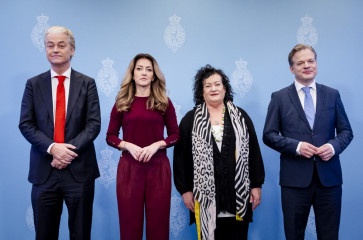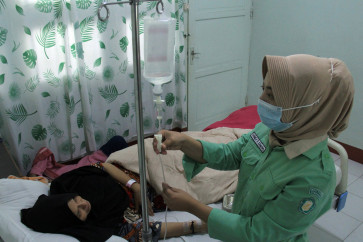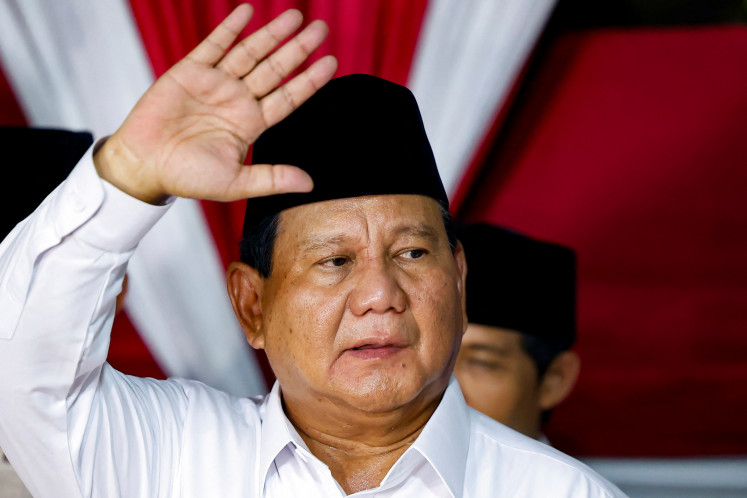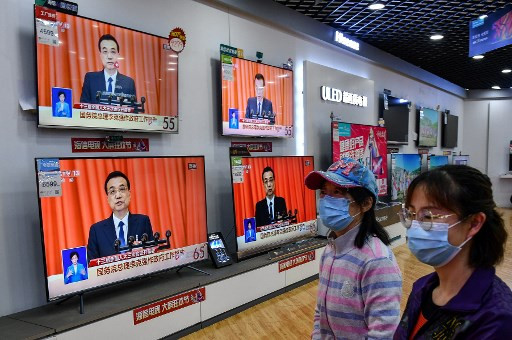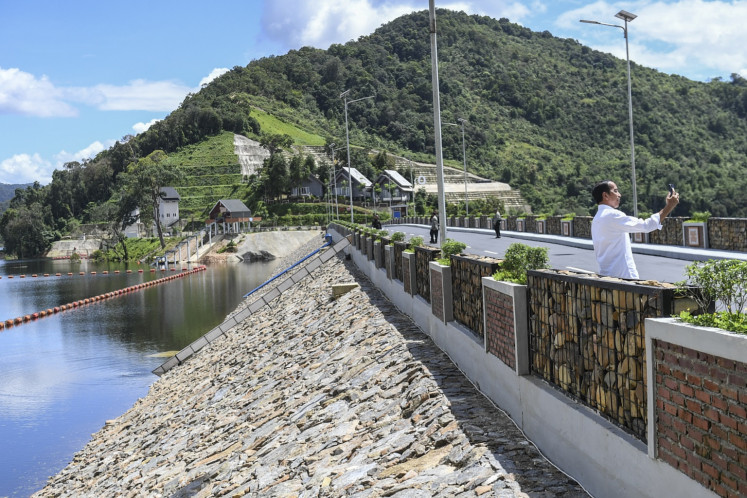ASEAN, LatAm get traction to boost ties
Well done!: Colombia’s Deputy Trade Minister Gabriel Durque (from left to right), former Singapore foreign affairs minister George Yeo, Indonesian Employers’ Association (Apindo) chairman Sofjan Wanandi and Mexico’s foreign affairs ministry’s international economic promotion director general, Nathan Wolf, shake hands during the final plenary session of the ASEAN-Latin Business Forum (ALBF) at the Shangri-La Hotel in Jakarta on Tuesday
Change Size

W
span class="inline inline-center">Well done!: Colombia’s Deputy Trade Minister Gabriel Durque (from left to right), former Singapore foreign affairs minister George Yeo, Indonesian Employers’ Association (Apindo) chairman Sofjan Wanandi and Mexico’s foreign affairs ministry’s international economic promotion director general, Nathan Wolf, shake hands during the final plenary session of the ASEAN-Latin Business Forum (ALBF) at the Shangri-La Hotel in Jakarta on Tuesday.(Antara/Rosa Panggabean)
Having heard enough generous words on the marvels of their emerging economies, participants of the third ASEAN-Latin Business Forum in Jakarta agreed to move beyond talks and engage in concrete action plans.
Policy makers at the forum said they would enhance existing bilateral and multilateral frameworks to facilitate more interaction while developing ways to improve connectivity. The private sector, on the other hand, agreed to improve networking and provide business assistance on trade and investment.
The Alianza del Pacífico or the Pacific Alliance trade bloc with members including Chile, Colombia, Mexico, and Peru, officially invited Indonesia and ASEAN to join the group as an observer as a prelude to a deeper partnership in the form of a multilateral trade deal between the regions in the future.
“It is no secret that the fastest growing region in the world is the Asia Pacific. We should take advantage of that. There are plenty of opportunities, it can be bilateral, can also be regional. We need to work on it, and the time to work is now,” said Mexico’s Economic Minister Bruno Ferrari at the closing of the two-day forum.
The Latin American trade bloc was formally launched at the organization’s fourth summit in Chile’s Paranal Observatory on June 6. The combined economies under the bloc amount to the world’s ninth largest economy with total exports representing 55 percent of Latin America’s overall exports.
At the signing of the trade agreement, Panama and Costa Rica were present as observer countries. The bloc also agreed to finalize the creation of the first combined Latin American stock exchange.
Indonesian Trade Minister Gita Wirjawan greeted the invitation, saying that becoming an observer would be “the next logical step” in improving economic cooperation with Latin America.
“If you look at the combined GDP of the Pacific Alliance members, it is already well over US$3 trillion, almost equal to ASEAN GDP. Personally I favor becoming an observer, and will immediately consult with the foreign ministry,” Gita said.
Brazilian Ambassador to Indonesia Paulo Alberto Da Silveira Soares said the forum had achieved much and that a working meeting with the Indonesian delegation on trade and investment had been productive.
“There is an enormous movement going on. [..] We are not talking about action, we are acting. We are bridging the gap every day, every single moment,” he said.
Minister Gita said Indonesia had identified several “low hanging fruit”, big companies from big Latin American economies who might invest in Indonesia.
“If we can get a large Brazilian company to invest in poultry and cattle on a big scale, it will help us get smarter through better consumption of protein. We have talked to several cattle operations, but it does require a regulatory review,” Gita said.
Indonesia does not import live cattle or meat from Brazil due to foot and mouth disease outbreaks in the past. Based on the 2009 Law on Animal Husbandry and Animal Health, Indonesia can only source meat from a countries cleared from the disease by the World Organization for Animal Health, which reviews its research every year.
Sofjan Wanandi, chairman of Indonesia’s powerful business lobby group Apindo, said his association would assist Latin companies interested in investing in Indonesia and would make sure that they dealt with reputable companies.
“We are ready to do what is necessary so that they don’t pick the wrong partners, choose a respectable trading partner. That is why the exchange of information and networking are important,” Sofjan said.
The next ASEAN-Latin Business Forum, held annually by the ASEAN Foundation and a host country,
will be held in Latin America with several countries already applying to become host for the biggest gathering of government officials and business players from the region and ASEAN.

